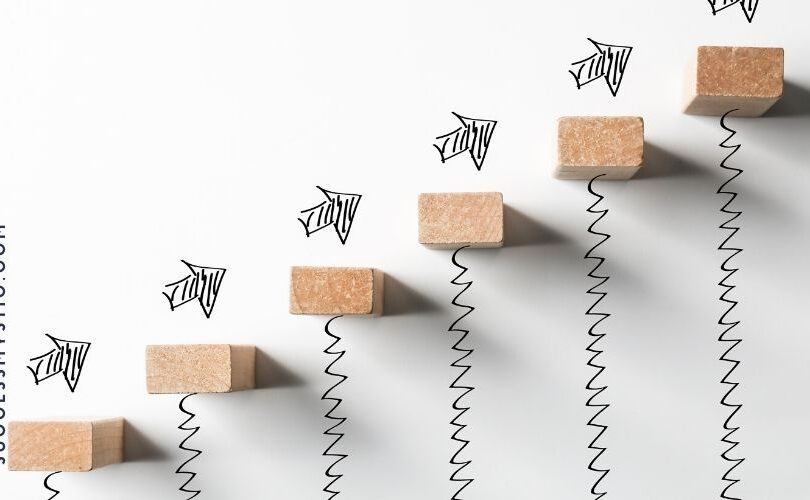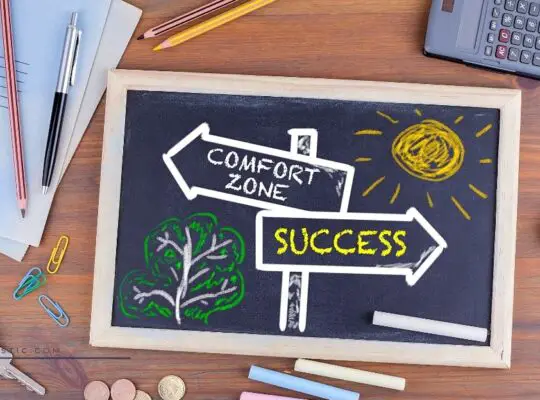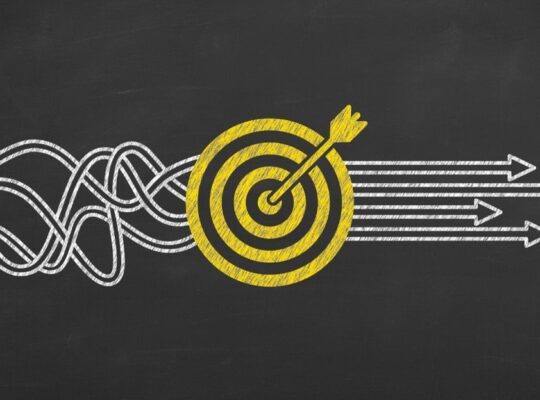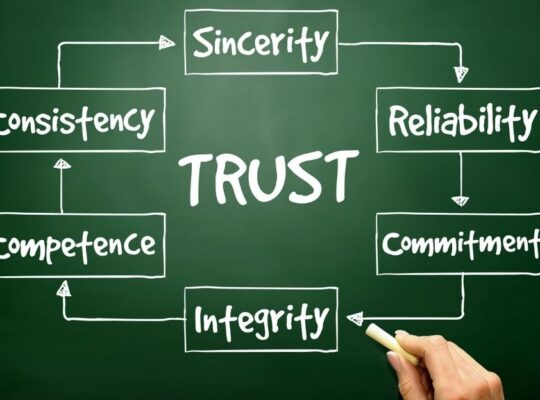Empower Yourself With Growth Mindset, Take Control of Your Life and Achieve New Levels of Personal Growth
Developing a ‘growth mindset’ takes time and patience, but with consistent practice, you can change how you view yourself and the world, which can create more success and happiness for you. This article explores the ins and outs of the growth mindset and how it can improve your personal development.
- Do you feel like there is something holding you back in your life, but you aren’t quite sure what it is?
- Do you go to bed some nights and wonder why you did that thing or said those words and wonder how you can change some bad habits you have?
- Do you have a big dream, but are finding it hard to make progress towards it?
Your attitude may be what is holding you back in life.
Your mindset controls your behaviors and choices, and the wrong mentality can leave you feeling frustrated, worried, and like you always need to prove yourself to the world. But, when you embrace a growth mindset, you will find that your world is actually full of possibilities, not closed doors. [References 1, 2, 3, 4]
We will also learn more about the fixed mindset, including how it may be the reason you do not feel like you can succeed in life. Finally, we offer strategies and tips for how you can transform your mindset into a more positive, learning-oriented one that expands your possibilities.
Related Article: Mindset 101 → Conquering Unhealthy Mindsets
What is a Growth Mindset?
The term ‘Growth Mindset’ was first coined by author and researcher Carol Dweck in her groundbreaking book ‘Mindset: The New Psychology of Success‘ in the year 2006. As a researcher of personality, motivation, and development, Dweck has studied the role of your outlook on success and happiness for many years, and she has determined that we all have a mindset that lies somewhere between two extremes on a continuum.
The growth mindset, as defined by Dweck and embraced by other since its introduction, is when you believe that your talents and strengths can be developed as you age.
This development occurs through work, learning from others, explicit effort, and engaging in practice. The growth mindset is contrasted with a fixed mindset, in which you subconsciously believe that your talents are innate to you when you are born and do not evolve much throughout your life.
This understanding of a growth mindset challenges long-held beliefs that you are either born smart or you aren’t, and that gifts and talents are pretty much fixed form birth.
Being growth-oriented is a way to help you identify ways of strengthening your weakness, closing gaps in your achievement through intentional effort and overall enabling you to grow as a person in various ways.
Fixed vs Growth Mindset
A fixed mindset means you subconsciously believe that you are born with whatever qualities you have and they change extraordinarily little over time.
Because of this, a fixed mindset often leads to people feeling they must prove their abilities or worthiness repeatedly or to compete against others for top honors to show their worthiness.
Because those with a fixed mindset do not believe they can gain more intelligence, talent, or moral character in their lives, they are continually having to defend their aptitudes and demonstrate them to others.
In contrast, having a GROWTH MINDSET allows you to assume that your gifts and talents at an early age are merely a starting point for your evolution and that each of your essential qualities are things that can be developed and grown throughout your life.
Because we all have the capacity for change and growth, this mindset believes, we can learn from circumstances and setbacks and change through the application of intention and exercise.
Related Article: People Pleasing 101 → How to stop this unhealthy behavior and mindset?
How Mindset Influences Your Reaction To Challenges
➢Those with a more fixed mindset will often avoid challenges or shy away from difficult or new things in their lives. These types of situations could reveal deficits in their talents or lead them to feel vulnerable or inept.
➢This way of thinking often causes people to lose interest after situations become difficult because they inherently believe they will never succeed, so why bother. This can lead to negative behaviors like avoidance or feelings of fear.
➢Having a more growth-oriented way of thinking, by contrast, can cause you to have a much more positive outlook on challenges. These represent opportunities to learn and thrive, and new experiences should be valued because they stretch you and teach you new things.
➢For those with this orientation, challenges are fun because they are hard, not despite their difficulty. A growth mindset makes it more likely that you will stick with a problem until its resolution, as well.
Related Article: The Goal Setting Mindset 101 → Understanding the goal setting mindset
How Mindset Changes Your Attitude Towards Setbacks
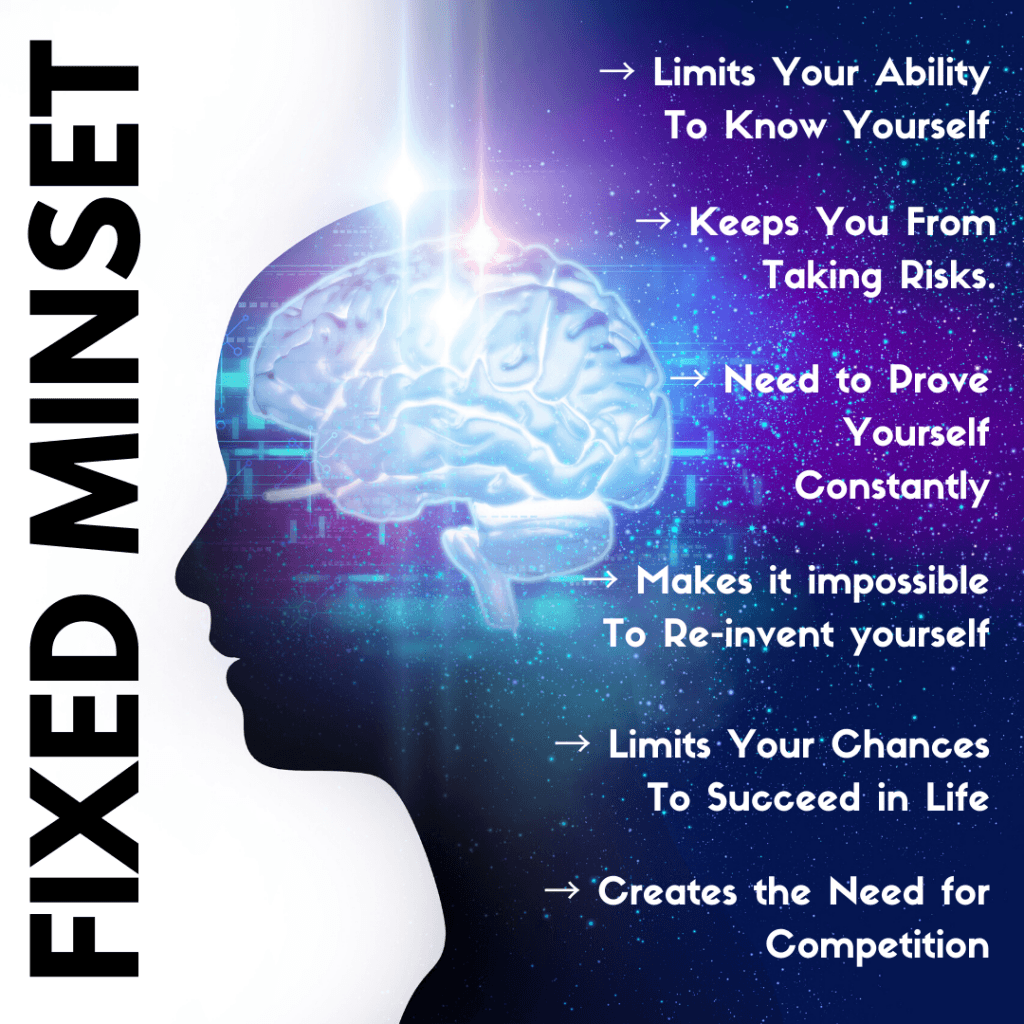
When you used a fixed mindset, one setback or failure can be enough to define your life or ruin your happiness. Because you are unsuccessful once or in one thing, it somehow speaks to your measure as a person or for all your abilities.
Those who think this way live in fear of failure and will go to great lengths to avoid this outcome.
You might like: 4 Ideas for Turning Your Mistakes Into Life Lessons
This pessimistic way of thinking defines any failure as permanent, universal, and internal, which means that it becomes who you are rather than something you once did.
This thinking can lead to lots of blaming of others for your own mistakes as well as being defensive when you are criticized or offered feedback that is meant to help you learn.
Those with growth-oriented thinking see setbacks as chances to try again and learn new information. They realize that challenges are a part of life, and you can only control how you react to them.
Unlike those with a fixed mindset, those in this category view failure or setbacks as temporary, specific, and external, which allows them to learn from their mistakes and move forward more productively.
A growth mindset helps you value feedback from others as a chance to hear new perspectives and learn form others with different experiences, too. [References: 1, 2, 3]
Related Article: The Flexible Mindset 101 → Understanding the Flexible Mindset
How a Fixed Mindset Greatly Limits Your Life
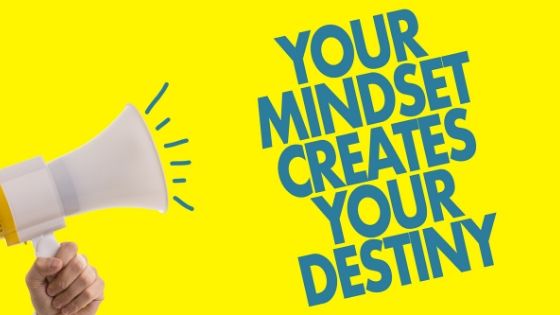
Now that we see the differences between these two ways of thinking, let’s look more carefully at the fixed mindset and how it can influence your life, should you embrace this view of yourself and the world. There are many dangers or drawbacks to welcoming this type of thinking, and this section will explore these in more detail to help you see how this way of thinking influences your other beliefs, behaviors, and choice in life.
Fixed Mindset Keeps You From Taking Risks
When it comes to attaining lofty goals or reaching the pinnacle in your field, you must take risk time to time. Risks are what stretch your comfort zone and force you to dare to be different, and very little in life can ever be achieved without taking at least some chances now and then.
But many do not take risks because they are too afraid that the consequences will not be favorable.
They fear failure. This fear of things not working out as you planned is born from a fixed mindset. And because your fixed mindset says that you can’t learn and develop, failure represent nothing but adverse outcomes.
Fixed Mindset Leads to Needing to Prove Yourself Constantly
Those with a fixed way of viewing themselves and the world subconsciously believe that their abilities, intelligence, character, and other traits are already in place from birth.
If we can’t change in any meaningful way in our lives, then we better have everything we need in place when it comes time to show others who we are and what we can do.
This leads to a need to maintain your image, to project your competence to others, and to always prove your worth and capabilities to those around you.
Fixed Mindset Limits Your Ability to Succeed
Research into attitude and mindset has consistently demonstrated that what you believe about yourself will have the most influence on how you lead your life.
Your mindset is the foundation for everything you do from the time you wake up each day until you go to bed at night. So, when you believe that you are already everything that you can possibly be, why would you get up each day and try hard to succeed?
Your motivation to set lofty goals and work hard to achieve them will be profoundly influenced.
Fixed Mindset Limits your Ability to Know Yourself
Those who adopt a fixed mindset receive their rewards in life from validation form others and external rewards, which are evidence of their innate talents.
They do not take the time to understand their motivations or intrinsic reward system, and they lack the ability to self-reflect, which is an integral part of personal growth.
But it is only through self-awareness knowledge that you can lead an authentic life and be truly yourself, so without this, you limit your potential and self-actualization.
A Fixed Mindset Means You Can’t Become A Different Person
At some point in your life, you are going to wake up and realize that you are ready for a change, that you want to try something new, or become a different version of yourself.
This is the nature of being human. You get tired of your job, your feelings for your spouse change, you want to have children, decide to go back to school.
This is part of getting older, aging, and changing. But those with a fixed mindset have a tough time seeing a new version of themselves, of taking the chances necessary to make these substantial changes happen. You end up living the same life every day for the rest of your life.
Fixed Mindset Creates the Need for Competition
When you believe that you are born with all the talent and ability you will ever have in life, you tie your identity and your self-worth to your accomplishments.
“See, here is evidence of my intelligence or skill. Look at how smart/good I am.”
That means that life becomes about winning and avoiding losing. And when you focus so much on whether or not you are not on top, you can end up making some poor decisions related to your desire to win at any cost.
The idea of the “Zero-Sum Game” (i.e., if You Win, I Lose) has led to many poor decisions over time because of the unnecessary and unhealthy focus on external sources.
14 Key Benefits of the Growth Mindset
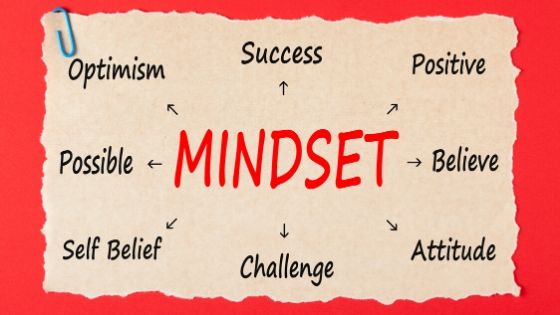
Now that we have explored some of the more profound influence of the fixed mindset, we will shift gears to examine the outcomes of a more growth-oriented way of thinking.
You Can Form Stronger Relationships
When you have a growth mindset, you appreciate and accept that you can learn a lot from other people, including your partner or spouse.
Being growth-oriented, you enjoy learning from your friends, co-workers, family, and loved ones, which means you are more interested in them.
Your long-term relationships tend to be strong because you accept that your partner may be able to push you as a person that your partner may be able to push you as a person and help you grow over time, and you like that they encourage you to learn new things.
Those with a growth-oriented way of viewing themselves will be more open and accepting of others, will have more empathy toward others, and can admit when they are wrong, which makes it easier for others to get along with you.
When you embrace your ability to grow and change throughout life, other people will trust and gravitate toward you.
You Will Enjoy Life More
Those with a fixed mindset believe have to already be good at something to enjoy it, but when you embrace a growth-focused attitude, you can enjoy all that you do, even those things that you are still learning about or have never tried.
A growth mindset permits you to do things, even when you are terrible at them, and still enjoy doing them. This is very freeing and gives you permission to try new things and experiment with life, which makes it more exciting and fun.
Accelerated Personal Growth
When you focus on continuous growth and improvement, you learn a great deal about yourself and become surprisingly good at analyzing your own strengths and weaknesses.
Those who value learning are better able to determine what they need and can reflect upon their performance and personal status to help identify ways to continue to improve themselves.
When you are not afraid to be honest with yourself and examine your talents as well as your areas for improvement, you can learn a great deal about who you really are.
Teaches You to Value Challenges
Those with a growth-oriented outlook see challenges as opportunities rather than something to be avoided.
When you encounter an obstacle or setback, you can learn to love these chances for self-improvement because it is through challenges that you learn a great deal.
Challenges and failures are opportunities to see what works as well as what does not and to try out new methods of problem-solving.
Those with a growth mindset learn to accept and even enjoy challenges because of the many lessons they learn from these.
When you stop fearing failure and focus instead of what it can teach you, it opens more possibilities in your world, too.
You Will Feel More Confident
When you do not think you can grow or change, you become incredibly nervous about every mistake and stumble you make in life.
Those with a growth mindset appreciate that they can learn form their mistakes, which gives them the confidence to try again and to remain strong in the face of adversity.
Learning new things can help you feel more competent, as well, but those with a fixed mindset resist these opportunities.
Gain Perseverance And Resilience
A growth mindset helps you bounce back form adversity, failure, and trauma, whereas a fixed mindset makes it more likely that you will ruminate on these setbacks and be unable to move on with your life.
This means that a growth mindset helps you develop perseverance and resilience, two traits that are key in just about any type of success in life, be it personal or professional.
Those who are stuck living in the past or fixated on past errors are more likely to feel depressed or unfulfilled. A growth mindset helps you see solutions and opportunities, which are lifelines when you suffer from depression.
You Will Value All Learning Experiences
Those with a growth mindset value all learning opportunities, whether they be through formal education or by learning from life.
In fact, when you embrace this type of thinking, you realize that those times in your life where you feel proudest and most competent are when you have finally mastered something difficult or worked through a challenging problem.
When you have an attitude of learning, you see all experiences as chances to improve yourself. Even the worst situations have something to teach us all, and you can appreciate this about life.
You Can Stop Seeking Approval from Others
Those with a growth mindset are more focused on improving themselves and learning from life, which means they spend less time worrying about what other people think.
And because you see all things as possibilities and opportunities, you lose the worry about whether something is “good” or “bad”, which can keep you living in a state of fear and concern over what others think about you.
You Can Stop Trying to be Perfect
Those with a fixed mindset worry that everything is always a test of their innate abilities, which can leave them feeling like they must always be perfect. This need for constant perfectionism is wearing and can result in anxiety and depression.
When you value growth and learning, though, you can stop feeling the pressure for perfectionism and embrace your imperfections as opportunities for development.
Children with fixed mindsets, for example, may believe that aptitude tests given when they are young can determine their entire future, which can lead to problems with not only perfectionism but motivation and willingness to learn.
Helps You Take Responsibility for Your Life
When you have a growth mindset, you are better able to accept what has gone wrong in your life, including your role in those decisions, without making excuses or blaming others.
When you focus on learning from your mistakes, you can see how you played a role in your setback or situation, and you can accept that you have more to learn in all things in life.
Taking responsibility for yourself and your actions is essential, and those with a fixed mindset have difficulty doing this.
You Won’t Mind Taking Risks in Front of Others
When you have a growth mindset, you not only embrace learning for yourself, but you also see the importance of others’ growth and development, too.
Those with a growth mindset are more likely to take risks, and they are also more likely to do so in front of others who can benefit from their own experiences.
A fixed mindset leaves you afraid of making a mistake or others knowing of your weaknesses, so you shy away from taking chances that might embarrass you.
But a growth outlook values imperfection and learning, so there is no need to be shy about allowing others to view your attempts and possible failures.
Single Outcomes Don’t Define You
When you embrace learning and continual growth, you see that all experiences, even those with less-than-positive outcomes, are to be valued and that there is always a chance to try again later.
Thus, failures or setbacks are only temporary and can be solved with the right time, knowledge, and effort. So, when things do wrong, you learn to let it go and move past it.
Those with a fixed mindset have a challenging time seeing these benefits and therefore allow failures or adversity to define them or to change how they view themselves.
Ability To Better Handle Transition In Life
Whether directly or indirectly responsible, there is plenty of research from social science and learning theory to show that those with a growth mindset are better able to handle transitions in life.
A growth mindset gives you the ability to handle changes and transitions because you view these types of events not as negatives, but as learning opportunities.
Stronger Ability to Self-Regulate
Those who embrace a growth mindset are also better at regulating themselves and their emotions, and they exhibit more pro-social behaviors than those with a fixed mindset.
What Growth Mindset Is Not
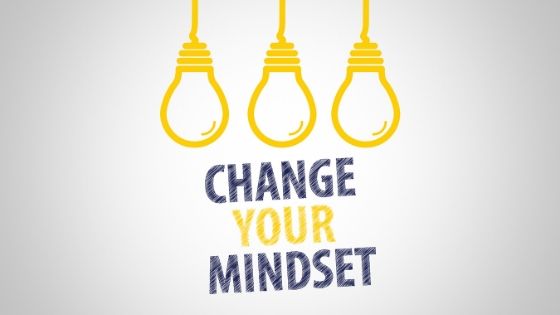
Just as it is crucial to understand what a growth mindset is and how it can benefit your life, it is equally important to dispel some common myths that exist about this type of outlook. Among the many misconceptions about growth-oriented thinking, a few tend to be the most common.
When it comes to growth-oriented thinking, it is vital to know not only what it is but also what it is not. For example, many people believe that a growth mindset is really saying that all you have to do is try, and good things will happen for you.
Or that is simply focused on recognizing and rewarding effort, regardless of the outcomes. “If I try, that’s all that matters. I have a growth mindset, which is important.”
In this case, if nothing is learned from the experience, the effort does not really matter, dose it? If all you do is try but keep getting the same results, then you are not learning. In fact, effort without reflection is the opposite of a growth mindset because it keeps you making the same mistakes again and again.
Just because you want to have a growth mindset does not automatically make it so, and you must still overcome your fixed mindset background and the triggers that will send you right back into your fixed ways of thinking.
Just because you have a growth mindset does not mean you will be able to accomplish any goal you set for yourself, either.
For example, tremendously few people in this world rise to the ranks of a professional athlete. To decide that is your goal in your 30s is highly unrealistic.
Not everything is possible just because you put your mind to it. When you set your goals out of reach, you set yourself up for discontentment and lack of motivation.
Understanding the misconceptions is important and can prevent you from feeling unsuccessful or applying habits or practices unsuccessfully.
The more you know about how your mindset can and cannot influence your behavior and growth, the stronger your chances of being able to make the changes you want to make.
With that in mind, next, we will explore the role of your mindset in self-improvement.
The Role of Growth Mindset in Personal Growth
When you are looking to make positive changes in your life and improve yourself, mindset plays a crucial role in your ability to commit to these changes as well as succeed in your quest for personal growth. To understand this, we will return to Carol Dweck’s original research on mindset.
In Mindset: The New Psychology of Success, Dweck explains, “For twenty years, my research has shown that the view you adopt for yourself profoundly affects the way you lead your life. It can determine whether you become the person you want to be and whether you accomplish the things you value.” How, you may ask?
Your mindset is founded upon your attitudes and beliefs, and it significantly controls how you act and react every day. For example, when you are working toward a goal, you must have the determination to help you attain your prize.
Your mindset controls how well you can envision your own success, how much effort you will put forth in realizing your dream, and whether you believe that solutions to problems along the way can be found. Without the right mindset, you are unlikely to succeed.
Because your mindset also is intricately linked with your beliefs about yourself, especially your self-esteem, it controls whether you feel as though you can achieve a goal. When you believe in your abilities, you are much more likely to achieve something, regardless of its level of difficulty.
Your self-esteem is founded on your beliefs of your worth as well as your evaluations of your capabilities, and those with a fixed mindset may struggle to believe that they have what it takes
in many situations. Healthy self-esteem comes from a belief in growth and learning, the desire to achieve given hard work, and the need to be able to improve when things are not what you want in your life.
Dweck goes on to elaborate. “Believing that your qualities are carved in stone—the fixed mindset—creates an urgency to prove yourself over and over. If you have only a certain amount of intelligence, a certain personality, and a certain moral character—well, then you’d better prove that you have a healthy dose of them. It simply wouldn’t do to look or feel deficient in these most basic characteristics.” Think about everyone you know. How among your colleagues, friends, and family is always trying to prove themselves? Do you engage in this type of behavior?
Those with a fixed way of thinking of talent believe that you are born an engineer, an athlete, a creative person, or a teacher. They think that there is a predestined path for us all, and your life is about living that as best you can. So, if you believe that you are already as smart as you will ever be or that you can’t change your path in life, what does that mean when you feel unfulfilled or want to be a better person?
The fixed mindset conflicts with growth and learning. But, when you learn to adopt a growth mindset, you can focus on learning and personal development because you realize that nothing is carved in stone, that your talents and abilities are changeable. You can become better at something through persistence, effort, practice, and coaching.
Dweck summarizes this well herself. “Your fixed beliefs about you will hold you back from making positive change. If you have a trait that you believe cannot be changed, such as your intelligence, your weight, or your bad habits, you will avoid situations that could be uncomfortable or that you think that are useless.
On the other hand, if you embrace the idea that your habits are not static, then that belief will be the critical first step to creating actual change in your life. Whether it is building a new skill, learning a new language, or breaking a bad habit, having the growth mindset will help you form that the belief that you are 100% capable of accomplishing any major goal.”
What is the practical application of all this to your self-help journey? Well, before you can change your habits, you first must address the underlying beliefs that are informing those habits. You must adjust and refine your mindset to embrace growth-oriented thinking, which will, in turn, allow you to make the positive changes you choose in your life.
Regardless of your current attitude and outlook, you can change it, if you wish to. As you age, your brain continues to develop and improve, and you can reshape your mindset at any stage of your life. Learning a new mindset is just like learning any other skill. It requires the formation of new neural networks, which then create new associations to the stimuli of your world.
To reframe your attitude, you need to practice new thoughts, associate these with new behaviors, and positive emotions, and continue to practice them repeatedly. The more you practice these, the more permanent that will become in your neural pathways, and the more likely they are to override older, more fixed ways of thinking.
Not sure which mindset is yours? Next, we provide you with an uncomplicated way to tell if you have a more fixed or more growth-oriented mindset.
Do You Have A Fixed or A Growth Mindset?
Everyone’s attitude and outlook exist on a continuum whose ends are either fixed or growth ways of thinking. It would be hard to be truly fixed in your way of thinking, but there are probably plenty of people who are. Likewise, being completely oriented toward growth is also perhaps not realistic. And, over time, you may move more toward one end of the spectrum or the other, depending on your situation.
While you may think you have a growth mindset, the chances are that you still hold on to a lot of beliefs associated with fixed ways of thinking.
The more you recognize those elements of your thinking that are fixed, the more you can work on adjusting these and looking for ways to improve yourself.
Not sure where you line up on this continuum? You can assess yourself using a simple tool called the Mindset Assessment.
This easy diagnostic instrument comes from research-validated measures of people over the age of 12 and can be used to give a simple evaluation of your current mindset. Many researchers have used this same tool in their studies on mindset and learning.
Mindset Self-Assessment
For each of the following questions, indicate if you Strongly Disagree, Disagree, Agree, or Strongly Agree. Keep track of your answers for each, and we will tally up your score at the end.
- No matter how much intelligence you have, you can always change it a good deal.
- You can learn new things, but you cannot really change your basic level of intelligence.
- I like my work best when it makes me think hard.
- I like my work best when I can do it really well without too much trouble.
- I like work that I’ll learn from even if I make a lot of mistakes.
- I like my work best when I can do it perfectly without any mistakes.
- When something is hard, it just makes me want to work more on it, not less.
- To tell the truth, when I work hard, it makes me feel as though I’m not very smart.
Now, look at your answers for statements 1, 3, 5, 7. These are statements that are more indicative of a growth mindset. If you tend to agree with these, you fall closer to that end of the mindset continuum.
The other statements, #2, 4, 6, and 8, all fall toward the fixed mindset end of the continuum. Agreeing with these shows that you have a more fixed outlook on your ability to change and grow.
Now that you know where you fall on the continuum, what should you do with this information? The next section includes hints, tips, and strategies for learning to cultivate a growth mindset and to adopt a more growth-oriented approach to your life.
Preparing To Transform Your Mindset
Before you decide that you need to adopt a growth mindset or that you are ready to work on your attitude, it is essential to understand the full scope of just how much your fixed ways of thinking are affecting you and your life. You may not even realize how deeply rooted your attitude is or the reaches of its influence.
Exploring the influence of your mindset before you begin to change it can help you to fully understand it, to identify the many ways it influences
your beliefs and actions, and to identify how it affects your ideas about yourself. Taking the time, in the beginning, to be honest about your mindset and how it is affecting your life now will make it easier to devise a plan for how best to address the necessary changes in the future.
Start by listening to your inner voice. We all have a running monologue inside our brains that is always talking, always telling you what to do or how to feel about yourself and life in general. This voice
represents your mindset, and when you start to listen, you will hear evidence of your beliefs.
Who is your voice affecting your beliefs about yourself? How is your self-esteem influenced by the words of this voice? How do you talk to yourself? What types of decisions does your voice affect? What is your voice telling you to do or not to do? What sorts of limiting beliefs do you hear?
When you start this exploratory phase, it can be constructive to write down what you are hearing. Recording this evidence can help you identify the specific ideas you need to work on changing as well as patterns of behavior that are directly affected by these beliefs. In fact, reading back the words you use to talk to yourself can be a compelling motivator for changing your attitude.
Take time to process your evidence. What does this say about your beliefs, about what you have believed for many years, and how you treat yourself as well as others? What lessons can you learn from these words and this evidence?
Let this sit for a while and return to it after you have had some time to think. Reflect on what you can learn, and you will use this later to help you set some goals for yourself.
This journal can be essential for you to review throughout your journey toward developing a new mindset, not just in the beginning. Return to the practice of reflection and recording evidence of your outlook again and again.
Get in the habit of listening to that voice and thinking about what it is saying. Do not stop doing this just because you start developing new habits. It should be something you do for the rest of your life.
Now that you know what you are facing, it is time to make a conscious choice to change your mindset. Set an intention for the type of mentality you would like to adopt. Write down the reasons why you are doing this.
Be concrete and include outcomes that you can see or measure, so you know what success will look like. Then, reset your intention every morning when you wake up. Commit each day to your new way of thinking and to adopting new vocabulary and behaviors.
Now that you see how your mindset is affecting you, you are ready to make a plan for your personal development.
In this phase, you will use specific strategies and tips to work on getting rid of your old, fixed ways of thinking and embrace healthier, growth-oriented thoughts and actions. Next, we provide a list of strategies that can help you do just that.
25 Ways to Develop A Growth Mindset
| #1. Start seeing challenges and obstacles as opportunities. When something difficult or unexpected happens in your life, look for what you can learn from the situation and how it can help you grow as a person. |
| #2. Stop seeking the approval of other people. When you are always worried about what other people are thinking about you, you are placing their priorities above your own. It does not matter what they believe. Only you must live with the consequences of your choices. |
| #3. Celebrate the learning and growth of other people. When you look for ways that other people are improving their lives, you start to notice more opportunities within your own. Be happy for people you love who are enhancing their experience, and soon, you will be happy for yourself, as well. |
| #4. Get comfortable with the world and you being imperfect. The fact that each of us is different and unique is what makes life interesting, and no one is perfect, even you. When you start to not only accept but appreciate this, you will realize that difference does not have to be a bad thing. And when you face your weaknesses and get to know them better, you are better able to find ways to address these. |
| #5. Focus on being your most authentic self. Those who are fixated on proving themselves to others often pretend to be something they are not. When you do this, it diminishes your ability to be you. Focus on living as yourself and allowing others to see the real you. Once you are your authentic self, you can focus on what matters most to you. |
| #6. Stop fearing failure. Instead of thinking of it as a setback or failure, embrace what you can learn from the experience. Focus on the lessons and the opportunities failure provides instead of what you are missing out on. |
| #7. Stop worrying about speed. It does not matter how fast you realize a dream or accomplish a goal. It matters that you are fully engaged in the process and are learning at every step of the journey. Regardless of how long it takes you, you will be getting something positive from your experiences every day. |
| #8. Strengthen your self-awareness. The better you know yourself, the more you can use your talents and strengthen your weaknesses. When you are not sure, ask for feedback from those you trust. People have a different perspective than you, and they can help you identify crucial areas for your development and learning. |
| #9. Cultivate curiosity. Children are curious by nature and ask lots of questions. Adopt this mindset. Instead of taking things for granted or seeing them as you always have, ask new questions, or look at them differently. Keep an open mind and become more curious about yourself, others, and the world in which you live. |
| #10. Get inspired by others with a growth mindset. Read books and blogs by growth thinkers. Watch videos that stimulate your learning. Hang out with friends who are focused on their personal growth. Adopt a mentor who is fixated on improvement. The more you surround yourself with the mindset, the easier it is to start thinking this way yourself. |
| #11. Watch your language. Pay attention to the words you use with others as well as with yourself. Your vocabulary tells you a lot about your underlying beliefs. Are you using positive, growth-oriented words, or do you still hear negative language? Changing your vocabulary can help improve your mindset, so be sure to really listen to the words you are choosing. |
| #12. Focus on your purpose. Those with a growth mindset are purpose-driven, so if you don’t’ really know what your purpose is, that’s a wonderful place to start with your personal growth journey. What excites you? What interests you most? What talents do you want to share with the world? The more you focus on what your driving passion is, the easier it will be to stay motivated to learn and grow. |
| #13. Take more risks. Those who fear failure will avoid taking risks. If you find that you shy away from chance, then, think of small ways you can take risks in your daily life. Try something you have never done before. Make yourself vulnerable to someone. Go somewhere new. The more you push your comfort zone, the easier it will be the next time you want to take a risk. |
| #14. Work on your self-discipline. Set small goals for yourself with the aim of committing to something every day. Discipline means doing something even when its hard or you do not want to, but you need to build this muscle just like other skills. Pick something you can commit to for a month, and work on doing it every day. Once the month is up, try working on a habit that is a little larger or more significant. |
| #15. Learn from the mistakes of others. When others in your life experience setbacks or stumbles, ask yourself what you can learn from their experience. This type of vicarious learning is essential and can teach you a lot. Pay attention to their attitude as well as their actions to see what lessons you can glean from them. |
| #16. Learn to appreciate feedback. When others offer you constructive criticism or feedback, listen carefully to your reactions. If you find yourself getting defensive, ask yourself what the intention of the other person really is. Are they trying to help you? If so, listen to what they have to say. They are interested in your growth, and they have a perspective that you can’t have. Focus on hearing them and figuring out if you would like to address this feedback constructively. |
| #17. Learn to love the process. Those who value growth see that real learning in life happens while you are trying to get to the goal, which is not nearly as important. The process is what teachers you the lifelong lessons, and how you get to the finish line is much more important. When you focus on process over product, you develop the right habits and beliefs to apply to other areas of your life. |
| #18. Focus on your actions, not your traits. Actions speak louder than words, and what you do matters. Don’t worry about much about your traits. Instead, focus on what you can do every day that exemplifies the type of person you want to be. This places the focus on what you can control. |
| #19. Don’t worry about making a fool of yourself. Whether it is dancing, making art, or trying a new sport, let loose and try it out. If you do not do so great, who cares?! If you fail miserably, what difference does it make? When you allow yourself to be free to try and fail, you open a world of possibilities and make life a lot more interesting. |
| #20. Try new learning methods. We all have ways that we learn best, but these can change over time. Learn about various learning styles and try out new ones that maybe you have not used before. You may find a learning strategy that works better for you. |
| #21. Reflect regularly. A big part of the learning process is figuring out what is working and what isn’t, which is what happens during reflection. Spend some time each day exploring your day and analyzing where you need to make changes. If you are not happy, what needs to change to make you more so? Reflection gives you regular data points to help you figure out what is next. |
| #22. Read up on how the brain works. The more you know and understand about how we learn and how the brain changes, the more you will believe that growth is possible. Brain plasticity and neural pathways are really interesting, and we are continually learning about how the brain works. Watch a video or read a book to learn more about this fascinating subject. |
| #23. Regularly set new goals for yourself. When you start to accomplish some things on your list, be sure to set new goals for yourself. Having something to work toward is an essential part of growth, and while it is okay to take a short break now and then, it is crucial that you not rest on your laurels just because you passed a milestone. |
| #24. Focus on being realistic about how much time and effort it will take to change your mindset. Your beliefs are well ingrained and probably date back from your earliest experiences. It takes a long time and lots of work to transform these types of beliefs. It IS possible, but it does take time, so be realistic with yourself about what you can accomplish in shorter periods. |
| #25. Take control of what you can control. You can’t control other people, life’s circumstances, or most other things, but you can control yourself and your mindset. When things start to look grim or outcomes do not go your way, focus on what you can change and let the rest take care of itself. |
Other Tips for Cultivating A Growth Mindset
Whether you wish to cultivate a growth mindset in yourself or your child, there are many other hints and tricks you can use to create an environment that values learning and growth. These tips can be used with adults, young adults, or even children, and can be modified depending on the age of the person.
1. Reframe how you talk to yourself or about yourself. When you notice phrases like “I’m no good at this” come out of your mouth or that of your child, take a minute to consider alternatives. In fact, you can create a list of other options to keep handy so that you or your child can look back at it when this type of fixed language pops up.
Your list of alternatives could include adding the word “yet” to your sentence, “This could take some time to solve,” or looking for other strategies to try instead of giving up. This list is great to post in the area of your home where your child does homework if they are struggling at school.
2. Think about your thinking. Known as metacognition, thinking about your thoughts and strategies can help you develop a growth mindset. When you solve a problem, stop to consider why you chose those methods, what would you do differently next time, and what you can learn from this exercise. Prompt children to answer similar questions when they have solved a problem, focusing on their process more than the product.
3. Read books about those who have overcome challenges. Embrace the lessons you can learn from people who have overcome adversity by using their wits and stretching their talents. There are plenty of examples throughout history, and many great biographies, autobiographies, and historical fiction books have been written with this theme. You might find yourself inspired by their commitment and bravery.
4. Repeat daily affirmations. Affirmations are one way to rewire your subconscious in favor of your new mindset. An affirmation is a statement written in the present tense but represents the reality you are striving for. For example, you would say, “I learn from my challenges and become a stronger person.” Write out three that are meaningful to you on your journey to a growth mindset and repeat these aloud to yourself every morning and every evening. Some people prefer to write out their affirmations instead of speaking them aloud.
5. Model a growth mindset for your children or for those you love. The act of being a role model for others is a learning opportunity for you, and when your children see you “walking the walk,” they are much more likely to follow suit, too.
Showing your children how you are changing your attitude, how you are learning to embrace struggle and failure, and how you learn from your mistakes will help not only them but you in the long run.
Final Thoughts
Your mindset is a product of what you learn over time, and what informed you as a child is still within you. If you want to change your mindset, then you must practice your new, more positive thoughts and actions, repeatedly ma25king a new neural pathway that rewires your brain’s automatic thoughts and patterns.
Now that you recognize that your mindset is somewhat fixed and how that way of thinking is influencing your behavior, you can do something to
change it all. Becoming aware is the first step but acting and being consistent is the most critical part of your attitude transformation plan.
Being more conscious about your actions, words, and thoughts is essential. Learning to pay attention to how you speak to yourself and others, how you
react in situations, and what makes you feel happy and successful are important. Embracing new things, taking small risks, and practicing your new mindset every day will be crucial.
Stick with your hard work because change is difficult. But it is worth it in the end when your new growth mindset can help you reach your goals and realize your full potential. Remember why you chose this path and the reasons you have decided to adopt a new way of thinking.

